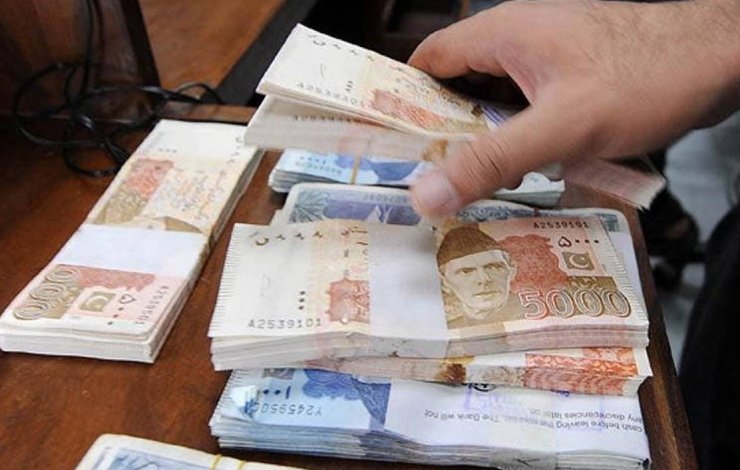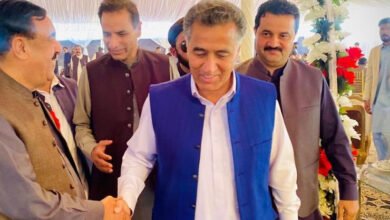Economic achievements of PM Imran Khan-led PTI govt (Part II)
Effective measures have been taken by the PTI government to increase tax revenue and it is expected to reach Rs6,100 billion by the end of the fiscal year 2022.

ISLAMABAD: Prime Minister Imran Khan-led Pakistan Tehreek-e-Insaf (PTI) government has made achievements and failures on different fronts during the past 3.5 years while continuing its journey to complete the tenure.
The incumbent government led by Pakistan Tehreek-e-Insaf (PTI) under the leadership of PM Imran Khan witnessed many achievements on the economic front that are given below:
Tax revenue
Effective measures have been taken by the Pakistan Tehreek-e-Insaf (PTI) government to increase tax revenue and it is expected to reach Rs6,100 billion by the end of the fiscal year 2022. Unnecessary tax exemptions and other tax incentives for the privileged classes were reduced.
In the first eight months, the tax revenue stood at Rs3,800 billion which is Rs268 billion more than the target. With the increase in tax revenue, the primary balance has improved and the surplus was Rs81 billion which was standing at 2.2 per cent when the PTI government came into power in 2018.
Loans from SBP
The PTI government had acquired the most difficult loan programme from the International Monetary Fund (IMF) and aimed to take tough decisions for bringing economic disciplines.
Under the program, the federal government stopped acquiring loans from the State Bank of Pakistan (SBP). The government reduced the volume of acquired loans up to Rs1,300 from the central bank in 2019.
Relief package on petroleum products, electricity
After the surplus tax revenue collected by the Federal Board of Revenue (FBR) up to Rs268 billion, the PTI government has decided to utilise Rs300 billion out of Rs1,300 billion dividends of the state institutions. Prime Minister Imran Khan had announced providing relief on petroleum products and electricity in his address to the nation on February 28.
Petrol prices have kept unchanged despite the rising prices in the global markets. Rs110 billion was allocated for subsidising petrol and diesel and relief was maintained in Pakistan despite its prices in the international markets up to $134 per barrel.
Moreover, it was decided to give a subsidy of Rs5 per unit on electricity. For those using up to 700 units, electricity rates were reduced by Rs5 per unit and Rs136 billion has been allocated for the subsidy.
Funds for the relief package were allocated in a strategy that will not put a financial burden on the budget or increase the budget deficit.
The subsidy funds were allocated by utilizing surplus income of FBR, state institutions’ dividends and reduction in the Covid-related expenditures.
Ease of doing business
During the PTI regime, the Board of Investment (BoI), the Securities and Exchange Commission of Pakistan (SECP), FBR and other regulators including the Oil and Gas Regulatory Authority (OGRA) and National Electric Power Regulatory Authority (NEPRA) were mobilised to facilitate business.
PM Imran Khan convened two high-level meetings every month to facilitate businesses and ease the difficulties of different sectors. 115 reforms to bring ease in doing businesses were made in Pakistan which addressed the grievances of 75 departments and 31 departments.
Pakistan’s ranking improved from 147 to 108 to facilitate global trade.
An easy business portal of the Board of Investment has been established which aims to directly address the grievances of the business community.
Progress on FATF action plan
The PTI government made historic legislation to curb money laundering and terror financing including the illegal trade of foreign currency, properties, jewellery and precious stones.
Pakistan completed the implementation of 26 of the 27 FATF items.
Various organizations have been banned on the instructions of the United Nations (UN) and their bank accounts were frozen besides taking actions against the office-bearers of the banned outfits.
Growth of big industries
Big industries have a 78% share in the whole industrial section of Pakistan and its growth rate was 7.5& this fiscal year, whereas, it was recorded at 14.85% in the previous fiscal year.
A record growth was recorded in the automobile industry of Pakistan up to 35.7%.
Rs436 billion relief from SBP
The central bank has given relief of Rs436 billion under Temporary Economic Refinance Facility (TERF) on the increase in exports and the export sector received more facilities. Moreover, the growth rate of the import sector was not accelerated.
Steps to end smuggling
The Federal Board of Revenue (FBR) took effective steps to end smuggling and special measures were taken to stop smuggling from the borders as several teams were mobilized to stop smuggling to Afghanistan.
Actions were taken against the officers who were found involved in smuggling. The steps help the local industry to flourish following the curb in the smuggling.
Autonomy of OGRA
The PTI government amended the law, which had been delayed for years, to allow OGRA to make independent decisions. OGRA has been given the power to fix the average price of gas for the 40 days.
It enables timely fixation of gas prices and helps reduce the circular debt of Rs650 billion in the gas sector.
In Pakistan, each consumer gets a subsidy of $8 as compared to India up to $6 and $5 in Bangladesh.
Oil on deferred payments from Saudi Arabia
During the PTI tenure, Saudi Arabia has increased its assistance to Pakistan following the successful diplomatic steps. Saudi Crown Prince Mohammed Bin Salman had visited Pakistan and announced himself as the ambassador of Pakistan across the globe.
Moreover, Saudi Arabia had also announced to provide oil on deferred payments. Following the announcement, Pakistan received $1. 2 billion worth of oil on deferred payments for the three years.



